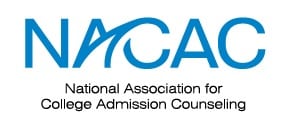Theology and Religious Vocations are a field of study and career paths focusing on religious traditions, beliefs, and practices. These disciplines are ideal for students who are passionate about religion, theology, and philosophy and wish to pursue careers in ministry, religious education, or other related fields. This article will discuss what students can expect from degree programs in Theology and Religious Vocations and the career opportunities available in these fields.
Educational Programs
Colleges offer degree programs in Theology and Religious Vocations at undergraduate and graduate levels. Undergraduate programs often provide a broad overview of religious traditions and beliefs and may require students to take courses in philosophy, ethics, and history. Some programs also offer concentrations in specific religious traditions, such as Christianity, Islam, or Judaism.
Graduate programs in Theology and Religious Vocations are typically more specialized and require students to have a strong foundation in religious studies. These programs offer advanced coursework in theology, biblical studies, and religious history, as well as practical training in ministry, pastoral counseling, and other related fields.
Some degree programs in Theology and Religious Vocations prepare students for specific careers in religious organizations or institutions. For example, a Master of Divinity (M.Div.) degree is often required for those seeking ordination as clergy in many Christian denominations. Similarly, a Master of Theological Studies (MTS) degree is ideal for students interested in teaching theology or religious studies at the college level.
In addition to traditional degree programs, many religious institutions also offer certificate programs in specific areas of theology or religious vocations. These programs provide specialized training in pastoral counseling, youth ministry, or religious education.
Career Opportunities
Students who pursue a degree in theology and religious vocations can pursue various careers in religion, ministry, and education. Here are some potential career paths and their potential earnings:
- Religious Educator: Religious educators are responsible for teaching individuals about religious beliefs and practices. They may teach in schools, universities, or religious institutions. The median annual salary for post-secondary religion and philosophy teachers was $75,240 in May 2020, according to the U.S. Bureau of Labor Statistics (BLS).
- Clergy: Clergy members lead religious worship services and provide spiritual guidance to individuals and communities. The median annual salary for clergy was $51,540 in May 2020, according to the BLS.
- Missionary: Missionaries travel to other countries to spread their religious beliefs and provide humanitarian aid. The salary for missionaries can vary widely, depending on the organization they work for and their experience level.
- Religious Writer: Religious writers create content related to religious topics, including books, articles, and blogs. The median annual salary for writers and authors was $67,120 in May 2020, according to the BLS.
- Chaplain: Chaplains provide spiritual support to individuals in hospitals, prisons, the military, and other institutions. The median annual salary for chaplains was $59,810 in May 2020, according to the BLS.
- Nonprofit Director: Nonprofit directors oversee the operations of nonprofit organizations that focus on religious, charitable, or social causes. The median annual salary for social and community service managers was $69,600 in May 2020, according to the BLS.
- Religious Counselor: Religious counselors provide counseling services to individuals, couples, and families, incorporating religious beliefs into the counseling process. According to the BLS, the median annual salary for mental health counselors and marriage and family therapists was $49,610 in May 2020.
It is important to note that salaries for these careers can vary widely depending on many factors, including location, level of experience, and type of organization. Additionally, some religious vocations may not offer traditional salaries but instead rely on donations or other forms of support.
Specific Majors in This Category
To find colleges that offer these majors and search by over 35 other criteria, use LifeLaunchr's College Match.




